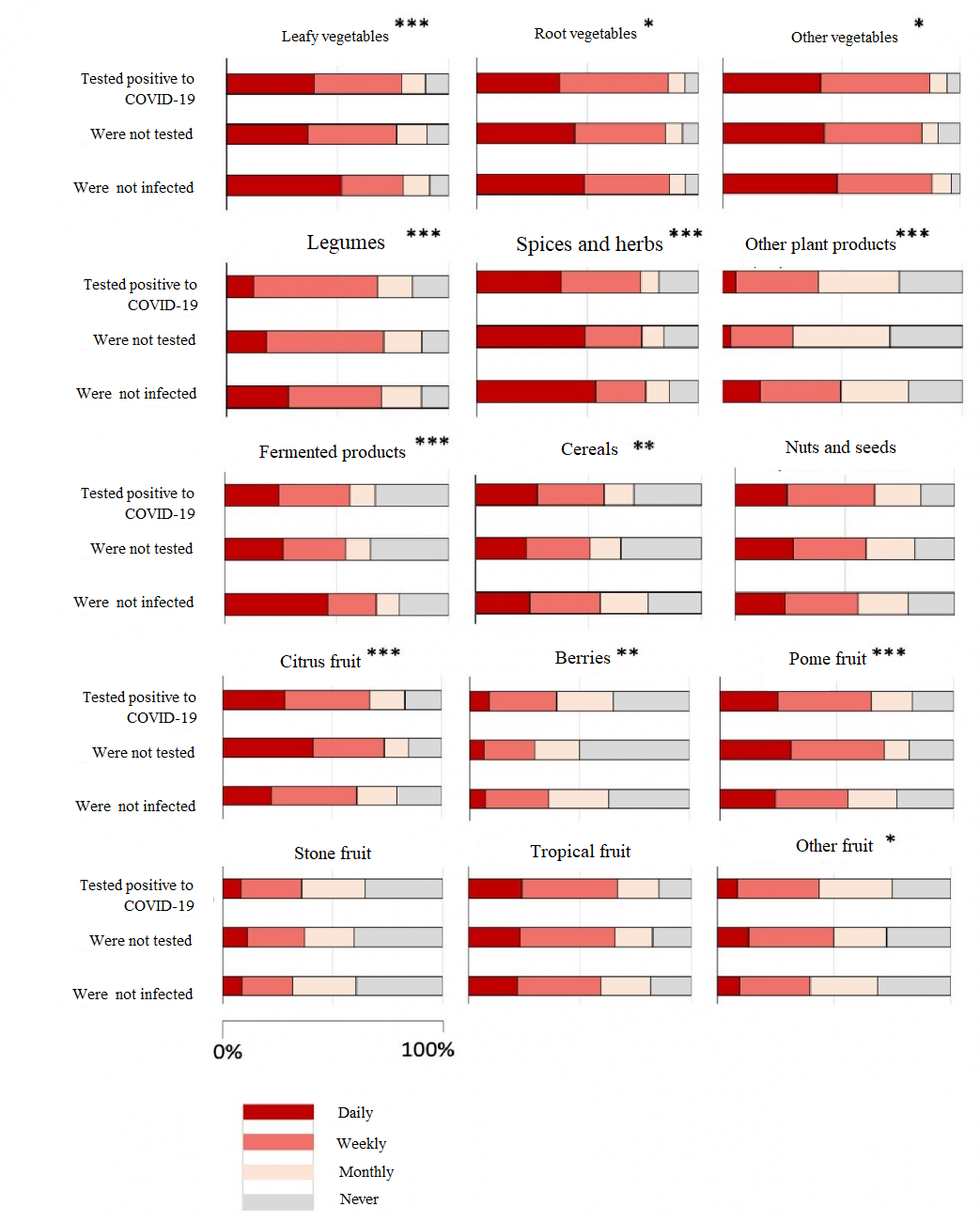
Fig.1. The effect of consumption of different food products on the rate of COVID-19 infection among study participants.
An apple a day can do more than keep the doctor away: scientists from the Global Consortium for Chemosensory Research (GCCR https://gcchemosensr.org/) have found that a diet rich in fruits and vegetables can reduce the risk of contracting COVID-19 and lead to a faster recovery for those who have contracted the virus. The consortium was created during the COVID-19 pandemic to study problems associated with chemosensory sensitivity disorders, in other words, with impaired smell, taste, and the perception of irritating stimuli in the oral cavity (trigeminal sensitivity). Currently, the consortium has more than 700 members, scientists and doctors, from more than 70 countries. According to the coordinator of the consortium's projects in Russia, Vera Vasilievna Voznesenskaya, a leading researcher at the laboratory of innovative technologies at the A.N. Severtsov RAS, Russians were the most active participants in this project. A total of 1,777 respondents from different countries took part in the study, and the survey was available in 10 languages. The largest number of patients were interviewed from India, Iran, Spain, Italy, Russia and Japan. The survey included questions about the date of infection, recovery time, age, gender, symptoms such as high temperature, headache, weakness, olfactory or taste disorders and a number of others, as well as the type of test used to ascertain the diagnosis, eating habits and the frequency of consumption of various foods and drinks. Respondents also had the opportunity to freely describe the characteristics of the course of the disease, medications and dietary supplements taken, vitamins, previous illnesses or the presence of other diseases at the time of the survey.
The incidence of COVID-19, the severity of symptoms, and the recovery process are influenced by various factors, including genetics, age, medical history, and underlying medical conditions at the time of infection. Variations in infection rates across countries have also been influenced by differences in government responses and strategies. However, an online survey of COVID-19 patients found a strong association between recovery time and the types of food and drinks consumed by the patient. Specifically, the results showed that those who consumed more vegetables, herbs, and spices, as well as fermented foods and drinks, recovered from COVID-19 faster. For example, COVID-19 patients in India and Japan had significantly shorter recovery times than those in Iran, Spain, Italy, and Russia, and faster recovery was associated with higher daily vegetable consumption. The researchers argue that the anti-inflammatory properties of phytochemicals found in plant foods may reduce the risk of infection and speed up recovery.
Previous studies have shown that phytochemicals – biologically active chemical compounds produced by plants – bind to a specific receptor of SARS-CoV-2, the virus that causes COVID-19, and thus help prevent it from replicating. Bioactive compounds with similar properties have also been found in black coffee and various types of tea, black, green, and pu-erh. This suggests that consuming foods rich in phytochemicals, such as broccoli, as well as other types of cabbage, citrus fruits (lemons, oranges), strawberries, blueberries, as well as coffee and various types of tea (without milk), may provide partial protection against COVID-19.
The results of the study were published in the journal Frontiers in Nutrition.
